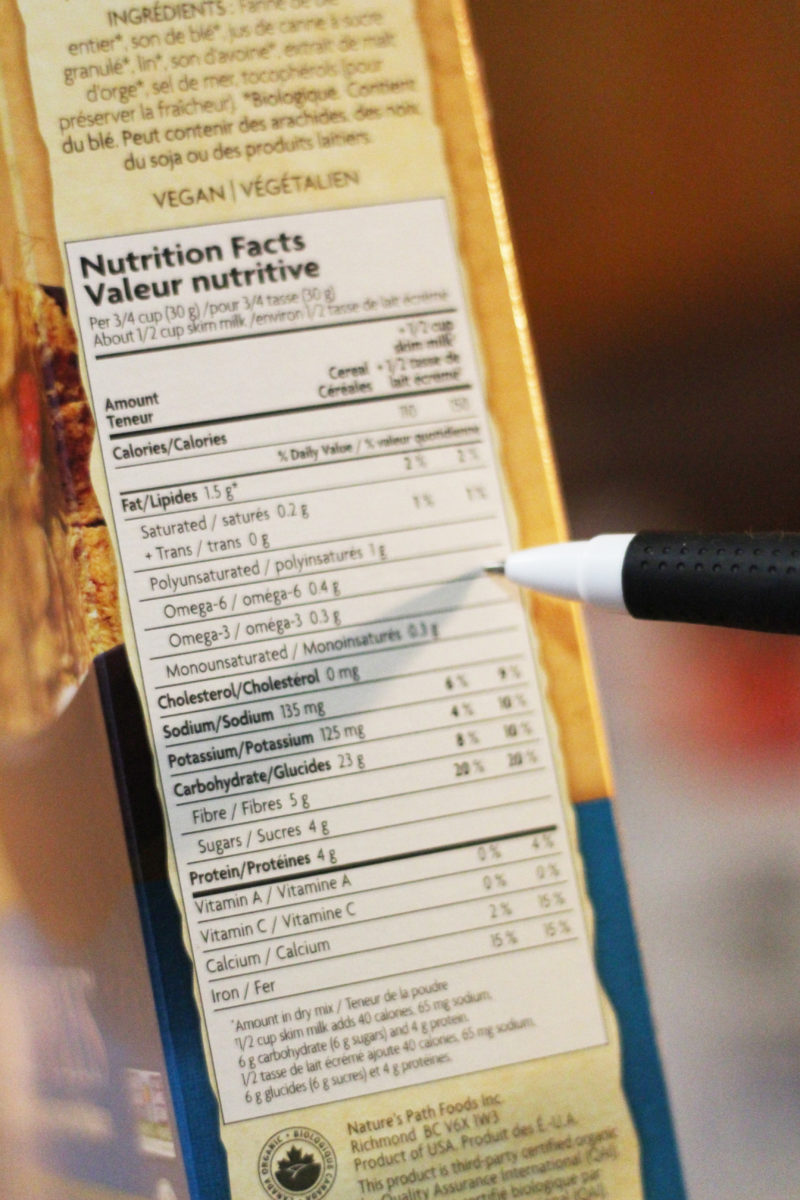Dr. Irena Knezevic, assistant professor of communications at Carleton University, delivered the annual Science and Technology Studies lecture at St. Thomas University on Thursday night to a crowd of about 100 people in Brian Mulroney Hall.

Titled “In Labels we trust: Examining the science, regulation and marketing of food”, the talk delved into issues of marketing and misinformation of food.
Knezevic opened the talk with slides of ‘certified organic’ and ‘fair trade’ logos, explaining that while these labels may in fact be there to inform us, consumers aren’t getting all the information they need. An organic label, for example, doesn’t incorporate how many miles your food has travelled or it’s environmental impact – regardless of the lack of harmful chemicals in it.
“Marketing has played a tremendous role in skewing our ideas of what we should eat – partly because marketing food can appeal to things that as humans we’re drawn to: convenience, taste and price. I think although we would like to think everybody’s making rational decisions we know thats not the case,” Knezevic said.
Knezevic spoke about the irony of “healthy” labeling masking a much bigger problem in the food world. She used the example of Kraft Dinner’s new whole grain mac ‘n cheese. The product is, by technical accounts ‘whole-grain’, but not necessarily healthier because it’s fortified with oat hulls and has more added sugars, salts and carbohydrates than the regular Kraft Dinner. Fortifying food to fit the increasingly acute obsession we have with nutrition is an example of what Knezevic calls a mechanical approach to nutrition.
“The main thing I try to get across when I’m teaching is is to understand nutrition and health as a much more complex issue in our lives. We’re not a mechanical body, we don’t function on nutrients we function on food. It’s not just to fuel our bodies – it’s something we use to connect with other people [and] something we use to nourish and nurture our bodies.”
Knezevic challenges the public’s overly mindful yet detached form of consumerism – we’re trying to solve our nutrition problems using the same system that’s set out to profit from this new wave of “healthy eating”. Knezevic stresses the large influence our environment and social factors have on our diets.
“Instead of making us into more informed consumers what this has done is actually created a landscape for the food industry to manipulate our tastes, our choices and really market their products to us more efficiently,” Knezevic says.
STU’s own assistant professor in Science and Technology Studies Kelly Bronson organized the lecture on Thursday. She’s known Knezevic for many years and holds a keen interest in food systems.
“This is a topic that’s relevant to science and technology studies,” Bronson said. “When we’re talking about values and how those values are reflected in something that we think of as quite mundane – like food labels – we don’t think of them as value-laden but it’s relevant to everyday folk.”
Bronson says initiatives like community agriculture programs in Fredericton fall perfectly in line with Knezevic’s ideas of a more holistic and environmental approach to food. She has high hopes for New Brunswick because its size is perfect for actually getting people involved in a healthy approach towards food.
“We eat every day and many of us rely on food labels to make choices. We need to try to embrace whole foods and practices that encourage relationships among people – thinking of the food environment and the social relationships surrounding food,” she said.
